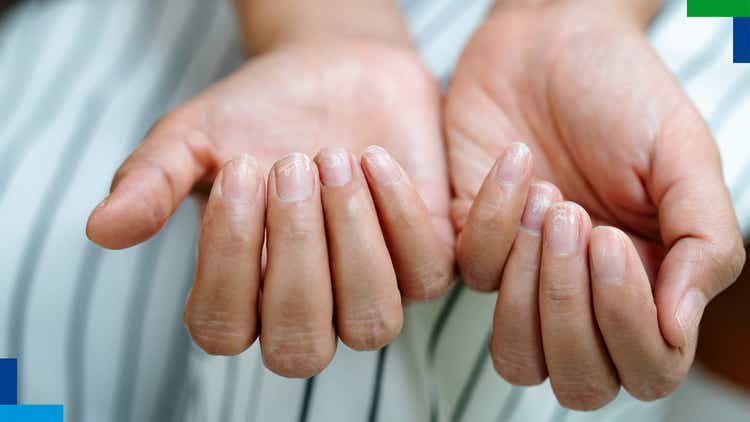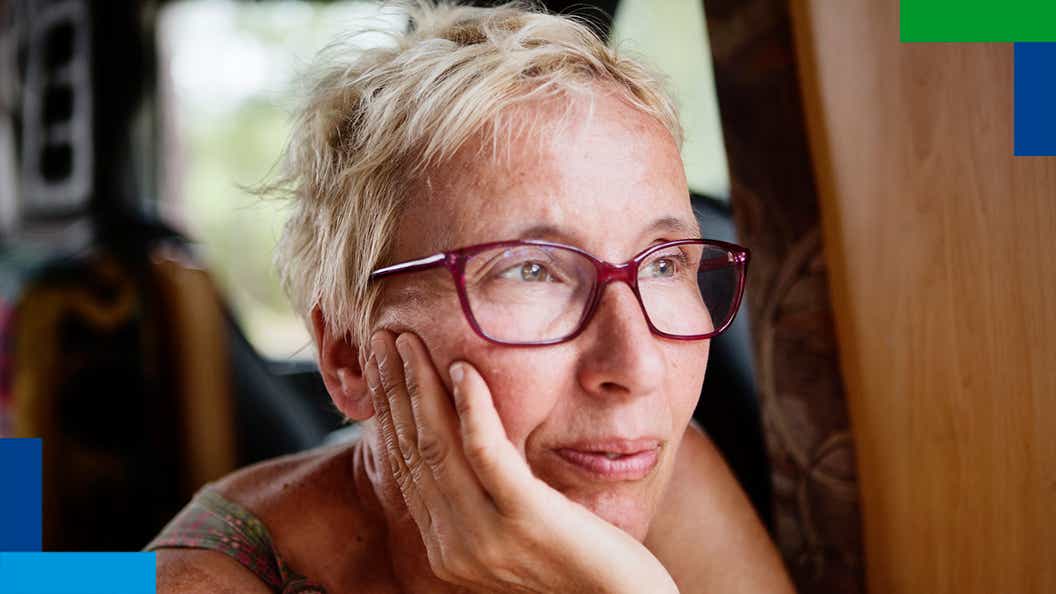Look after your body
Look after your body

This includes a balanced diet, moderate alcohol consumption, physical activity and not smoking.[1] If you have psoriatic arthritis (PsA), these factors may have an even bigger impact on your health.2
In addition to the treatment your doctor has prescribed,3 you may find that considering your lifestyle as a whole helps you.2
Watch your diet
Did you know that there is link between excess weight and how severe your psoriatic arthritis is?4 Being overweight may increase the risk of psoriatic arthritis, its severity and the effectiveness of treatment.24 Excess weight can also put a strain on your joints and bones that support the body.24
A reduction in weight has been shown to improve PsA pain, fatigue and the number of tender and swollen joints.4 Although there’s no clear evidence that a specific diet can affect PsA, some people report having milder symptoms when they ate more healthily.5
Some helpful hints on becoming a healthier you
Healthcare professionals recommend eating lots of fruit and vegetables,5 because they contain fibre, vitamins6 and antioxidants, and fatty fish.5
Try to opt for healthy fat, like olive oil, beans, whole grains and nuts and cut down on fried foods, sugar, fatty red meat and dairy.5
Spices like turmeric, ginger and cayenne can also help calm inflammation.5
If you drink alcohol, do so in moderation.[1] Alcohol has been shown to stimulate production of proinflammatory cytokines, or proteins that cause inflammation in the body.7 This may cause flares7 and reduce the effectiveness of your PsA treatment.2
TOP TIP
Buy pre-chopped, frozen veggies to give your hands a break*
Quit smoking

Quitting smoking is good for your health,8 but do you know why stopping can help people with psoriatic arthritis in particular?
Research into psoriatic arthritis and smoking is ongoing,9 but in people with a family history of the condition, smoking has been found to increase the risk of developing PsA.10 Smoking also means you’re more likely to develop it sooner than those who don’t smoke.11 It’s worth remembering that psoriatic arthritis is a condition that affects the immune system,12 and nicotine, found in cigarettes and e-cigarettes,13 actually changes the immune system.14
Smoking not only seems to increase the risk of developing psoriatic arthritis, especially for long-term and heavy smokers,15 but the ingredients in cigarette smoke may even damage the body’s cells.14 This could be why smoking appears to aggravate PsA symptoms.1415
You may believe that smoking makes you feel more relaxed, but nicotine could make stress worse.16 In fact, while smoking may at first make you feel as if you’re unwinding, this is soon replaced by withdrawal symptoms and anxiety, and the need to smoke more to calm these feelings down.17 This may be why the stress levels of smokers are slightly higher than non-smokers16 - and stress is a common trigger for PsA flare-ups.18
Smoking is also said to negatively affect the benefits of certain treatments for psoriatic arthritis.1920 Studies have found that some treatments didn’t work as well in people who smoked compared with those who didn’t, and smokers didn’t stick to taking their treatment as well as those who didn’t smoke.1920
These are all some of the excellent reasons to focus on quitting smoking, but sometimes breaking a habit is easier said than done. You’ll find useful information about smoking cessation treatments online, but it’s also a good idea to get your doctor’s advice, as some methods may not be appropriate for you. For example, patches aren’t recommended for people with skin conditions, so if you have psoriasis as well as psoriatic arthritis, please remember this.21
Finally, you may find that you have more energy on quitting and want to exercise more,8 but make sure you take care not to overdo it.22 Discomfort after a good workout is common, but if you think of this in terms of 0 being no pain at all, and 10 needing to go to the hospital, you shouldn’t feel anything more than a 4.22
Keep fit
Exercise brings many benefits,[1] but may seem challenging if you have stiff, swollen or sore joints.22 However, activity that is suited to your needs can protect your joints and strengthen your muscles.23 It can also improve your mood and stress levels, and help you manage your weight.24
You are more likely to stick with activities you like and that work for you,25 as they need to be something that will help your joints, stiffness and pain, rather than make it worse.22 Whatever you decide to do to keep fit, please check with your healthcare professional before starting any new activity.25 And most importantly, take note of any progress you make and congratulate yourself – every step is a step in the right direction!

5 tips for getting active
1. Start slow
Do little bits to begin and build up from there once you feel ready.23
2. Don’t over do it
If you feel pain when you flex your joints after a workout, you may have pushed yourself too hard and need to take it easy for a bit.2326
3. Enjoy yourself
Make sure you choose an activity you like25 or consider mixing a few up and doing different things on different days to keep it interesting.27
4. Stay hydrated
Not drinking enough liquid isn’t good at any time, but especially when you’re exercising.26
5. Consider yoga
The gentle movements can help keep joints moving and the breathing could help you stay calm.26
TOP TIP
Have a warm shower to warm up your joints before exercise*
Don't forget your skin and nails

Skin and nail psoriasis is common in people with PsA, so if you’re affected, make sure you pay special attention to yours.28 These days, we all try to wash our hands regularly, so make sure you moisturise well.29 Keeping your nails trimmed and using gloves to help you avoid irritants when doing chores or gardening is also a good idea.29 If you have Pso on your feet or toenails, make sure you protect them from possible injury, which can lead to flares, by wearing closed, roomy shoes with good cushioning.30 And if you’re out and about, make sure you protect your skin from the sun.31 Finally, while it may be tempting to have a good scratch if you have scalp psoriasis, please make sure you don’t.32
You may be interested in

You’re not alone – there are other patients with psoriatic arthritis, just like you out there.

Advice about dealing with the main PsA symptoms.

It can be easy to lose track of how you’re doing if you don’t take note.
*Representative of patient experience
